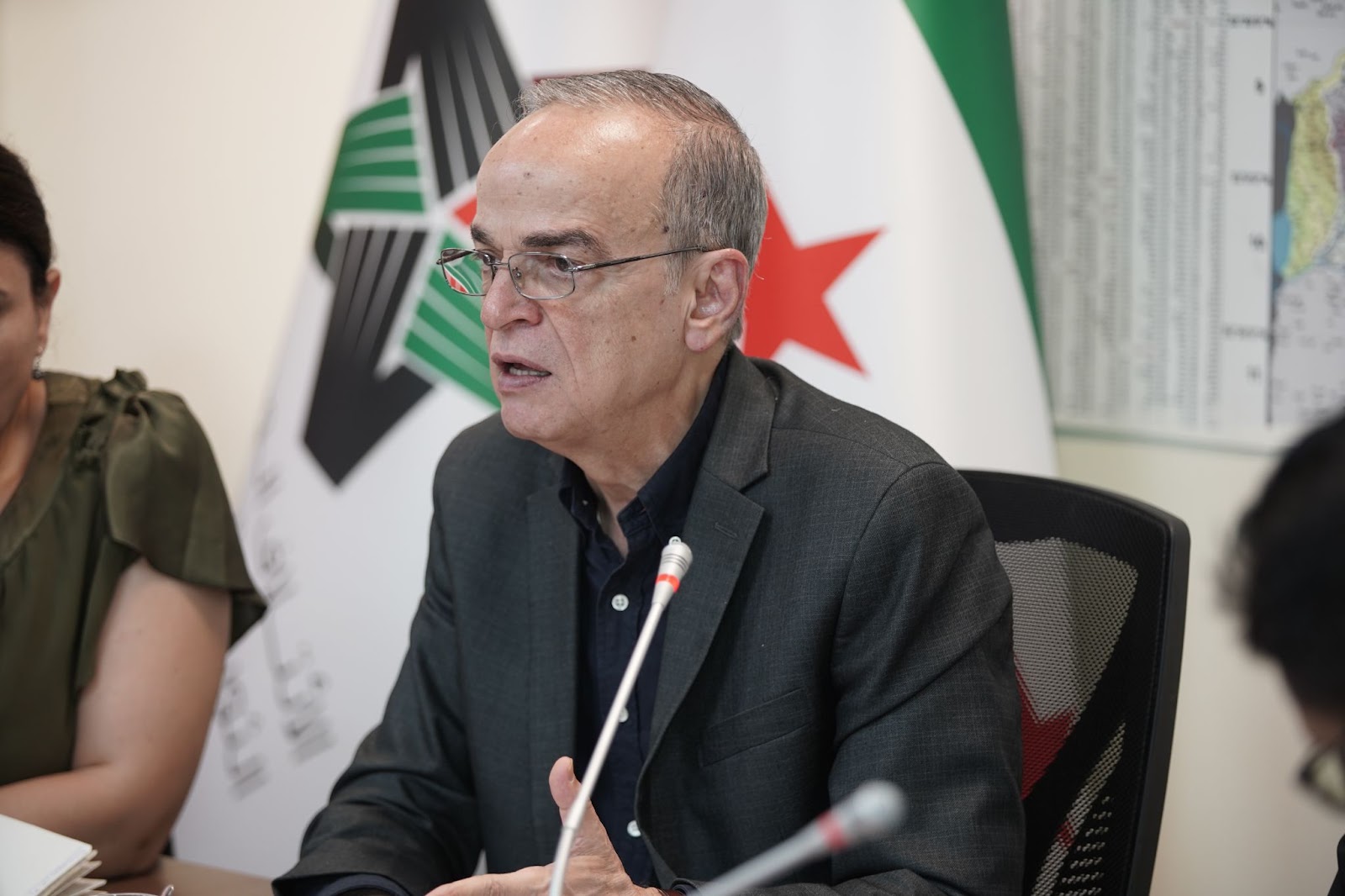President of the Syrian Opposition Coalition (SOC), Hadi Al-Bahra, delivered a briefing at the opening of the General Assembly’s 72nd regular meeting. He discussed the political and on-the-ground developments in Syria, focusing on the situation of Syrian refugees in various host countries, especially after the recent events in the Turkish city of Kayseri. He also outlined frameworks developed to find practical solutions to the challenges facing Syrian refugees.

Al-Bahra provided an overview of the latest local, regional, and international events affecting Syria. He noted a major shift in attitudes toward Iran, explaining that recent statements from regional political leaders are tactical rather than strategic. These statements aim to explore the possibility of filling the void left by Iran in Syria and building international and regional consensus aligned with the new reality. Al-Bahra emphasized that sustainable security, stability, and peace in Syria can only be achieved through a political solution in accordance with UN Resolution 2254, which is the only solution that can convince Syrians to return voluntarily and safely to their homeland.
Al-Bahra stressed that the SOC’s mission is to represent the aspirations of the Syrian people, who revolted and sacrificed to achieve them. He added that SOC members are not elected due to the impossibility of holding free and fair elections in the absence of a safe and neutral environment. He stated that the SOC’s legitimacy is derived from its commitment to the aspirations of the Syrians to achieve justice, freedom, and democracy, and its adherence to the goals of the Syrian revolution. He asserted that if the SOC deviates from these constants, it loses its legitimacy.
Al-Bahra reiterated that the only way forward for Syria is a political solution, which the SOC seeks through a political process facilitated by the United Nations to implement UN Resolutions 2118 and 2254. This is the only solution that can convince Syrian refugees that Syria has become safe and has laws that respect and guarantee citizens’ freedoms and rights. Without this, no Syrian refugee will return to their home country.
He cited the example of Daraa, which was forced to return to regime forces in 2018. He noted that there is still no security, stability, or peace in the province, and it continues to produce refugees. He stressed that this example should be considered before establishing unrealistic refugee policies that have no chance of success.

Al-Bahra pointed out that the unique Syrian situation requires a sustainable solution that fulfills the aspirations of the Syrian people. He added that it is impossible to reunite Syria or revive its economy without a political agreement in accordance with Security Council Resolution 2254. Such an agreement would serve as an exit strategy for stakeholder countries with conflicting interests, avoiding direct clashes, and ensuring their national security is not threatened. He said that a political agreement in line with UN Resolution 2254 is the only way out of the current impasse, fulfilling the aspirations of the Syrian people and providing the only sustainable solution.
Al-Bahra expressed surprise that some countries announced that Syria had become safe for the voluntary return of refugees, while the reality is the opposite, with the number of Syrians fleeing the country increasing. He assured the Syrian people that the SOC is committed to achieving freedom, justice, and democracy and that sustainable peace cannot be achieved without justice, which includes releasing detainees, determining the fate of the forcibly disappeared, compensating for losses, and prosecuting war criminals.
He emphasized that decision-making within the revolution’s institutions ensures broad participation, preventing any one person or small group from making decisions alone, and aligning decisions with the aspirations of the Syrian people.
Al-Bahra noted that the negotiating process, since its inception in 2014, has been met with skepticism and fear among the Syrian revolution and opposition forces. However, everyone has supported the demands of the Syrian people, and the SOC’s goal in participating in UN-sponsored negotiations in Geneva is to keep the demands of the Syrian people alive and to convey that the struggle for justice, freedom, and democracy will continue regardless of the hardships.

He highlighted that the Assad regime is not seeking a political solution and is the main obstacle to it. Some countries normalized relations with the regime, hoping for cooperation on security concerns and a move towards a political solution, but the regime’s intransigence and obstruction of international efforts have increased, along with its reliance on Iran.
Al-Bahra indicated that there are shifts in the policies of some non-pivotal European countries and efforts to close the Syrian issue, while the regime persists in trying to kill the political process and eliminate the institutions of the revolution. He stressed the importance of unity among Syrians in this critical stage of the revolution to strengthen their position regionally and internationally.
He noted that the complexity of the Syrian crisis, its regional and international interconnectedness, and the conflicting interests of involved countries hinder any unilateral solutions with the regime. Any moves in this area are tactical, not strategic, aiming to create new opportunities that serve national interests.
Al-Bahra reiterated the SOC’s commitment to the aspirations of the Syrian people and the necessity of preserving the institutions of the revolution. He urged all Syrian revolution and opposition forces to work together to improve governance and living conditions in northern Syria, which would positively influence international positions towards the Syrian revolution.
He concluded by urging Syrians to avoid internal conflicts and to respect their surroundings, even those Arab countries that have normalized relations with the regime. He emphasized the importance of building friendships and enhancing understandings that serve Syrian national interests.
Al-Bahra also stressed that there have been no political negotiations or direct or indirect tracks between the revolution’s institutions and the regime since the Constitutional Committee’s work stopped in 2022. He appealed to the Syrian people not to be swayed by rumors aimed at dividing them and weakening their resistance and relations with supportive countries.
(Source: SOC’s Media Department)









